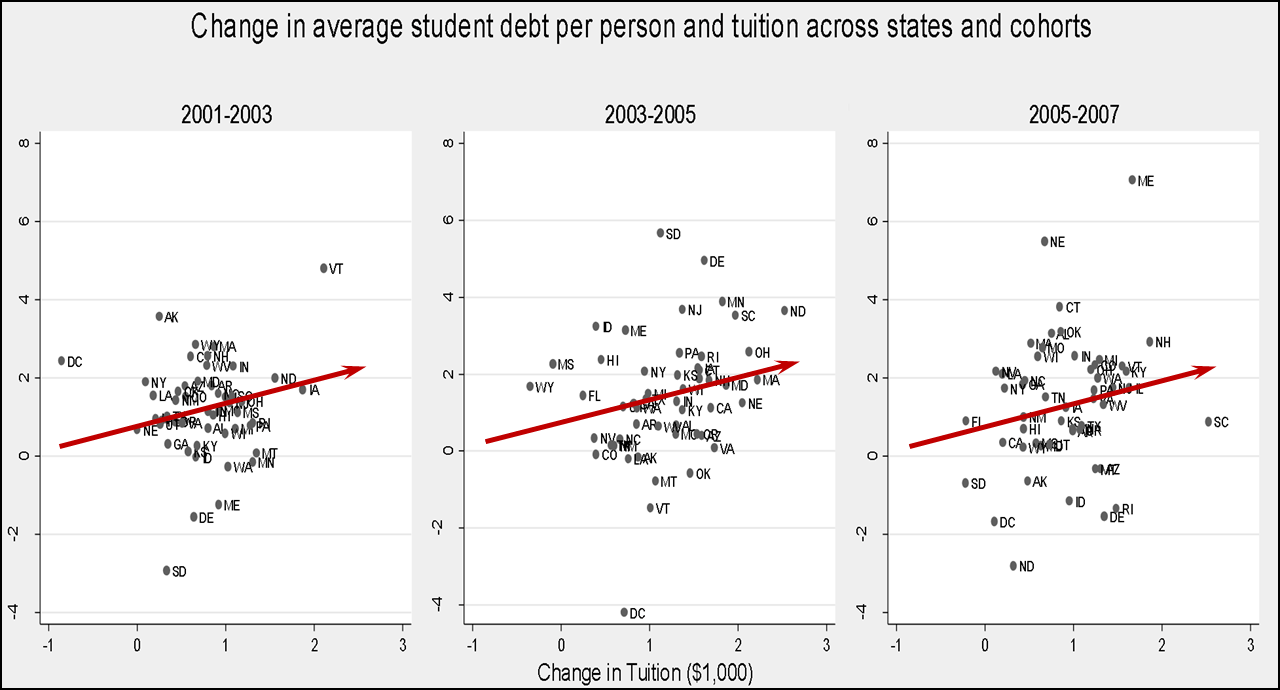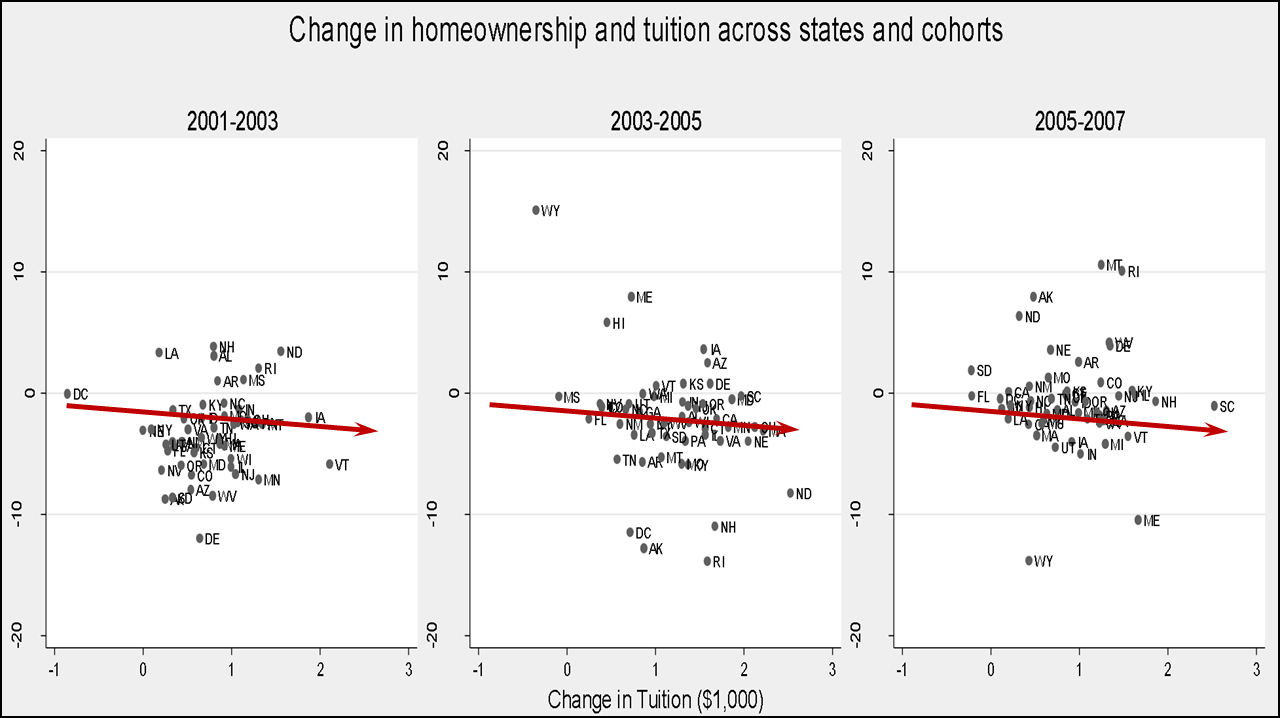Zaid Jilani of the Intercept points me to an interesting Fed study on the effect of rising university tuition. The authors make use of the fact that tuition has been rising at different rates in different states, and conclude that rising tuition has no effect on university enrollment. Young people continue to go to college at the same rate as always, and they rack up higher student debt to do it:

I assume this comes as no surprise to anyone. Next they compare tuition increases by state to homeownership rates six years later. Guess what?

As tuition and student debt go up, homeownership rates go down. The authors say that a $1,000 increase in college tuition and fees leads to a 0.24 percentage point decline in the homeownership rate for college students later in life (ages 28 to 30). Thus, the $3,578 increase in tuition from 2001 to 2009 is responsible for a decline of about 0.84 percentage points in homeownership rates among college students from 2009 to 2015. That’s about a tenth of the total decline.
A different analysis suggests the effect may be even bigger: 0.48 percentage points for each $1,000 increase in college tuition. That comes to 2.74 percentage points, which is about a third of the total decline in homeownership rates.
In other words, tuition increases can explain somewhere between a tenth and a third of the decline in homeownership among those with some college education. On net, this may not be a good deal for states:
The results suggest that states that increase college costs for current student cohorts can expect to see a response not through a decline in workforce skills, but instead through weaker spending and wealth accumulation among young consumers in the years to come….These states, on average, can expect both weaker starter housing markets and more “boomeranging” adult children to follow. The evidence points to a final policy opportunity to stimulate youth homeownership over the long run: funding state higher education.
I suppose the next step would be to take these estimates and plug them into a model that projects state economic growth and tax receipts. That would tell us, on net, if tuition increases help or hurt state and local budgets.















